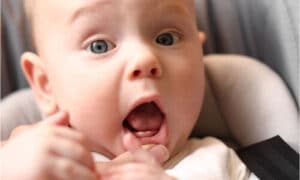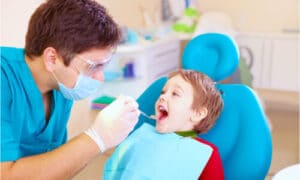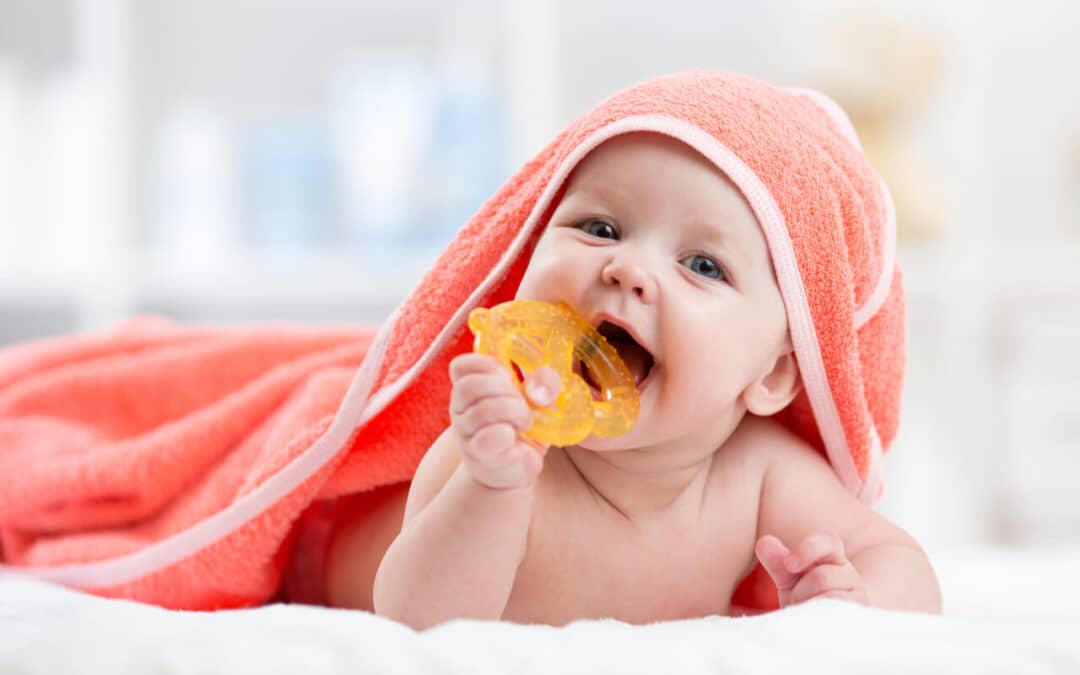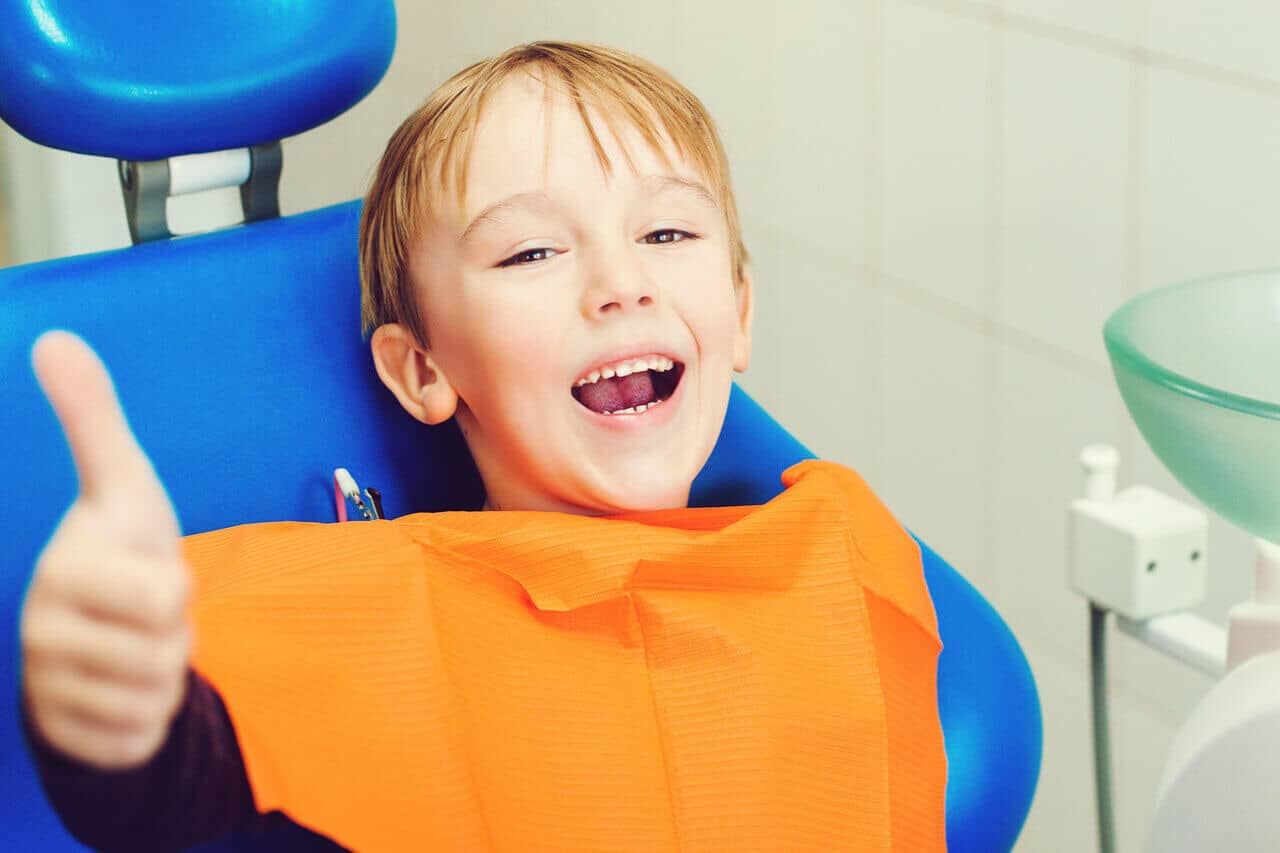Teething can be a stormy period for both parents and babies. In fact, the development of primary teeth starts while the baby is in the womb. Understanding the child teeth chart will help you know what to expect and learn how to care for them. Read on to learn more about the children’s teeth development and some tips to manage the teething process.
Teeth Development in Children
Teething refers to the dental eruption in babies, meaning the tooth is breaking through the gum line. The stage of tooth eruption varies from one child to another. For instance, your child might develop their first tooth when only a couple of months old, while others may not begin tooth eruption until they are 1 year old or more. In any case, though the timing may be different from one another, the order of tooth development is more consistent.
Managing the Development of Primary Teeth
The teething process can be tough to keep children comfortable. This stage can also affect the parents. Hence, knowing some tips to manage a child’s first teeth can help them ease the pain and track down their dental development. Some helpful tips include:
Massage: This can help ease the pain. To do this, gently massage the gum with clean fingers or a soft, wet fabric.
Chilled teething rings or crackers: A cold toy can alleviate discomfort from getting teeth. In any case, avoid using frozen teething rings and do not sterilise plastic teething toys in dishwater or boiling water, except if indicated by the manufacturer. So to get assurance, check the product label before purchasing any chewing toys.
Sugar-free or unsweetened teething biscuits: You can give this biscuit to infants over 6 months who have begun eating solid foods.
Dry the drool: Gently wipe the saliva from the baby’s mouth. This is because a baby’s drool can irritate the skin around the mouth, especially the chin area.
Pain-relieving medications: You can talk to your doctor about the medicines for your baby. However, paracetamol works well for children.
Loss of Baby Teeth
From the age of 6, the baby teeth become unstable and fall out to clear a path for adult teeth. It is entirely typical for a kid to lose their first tooth up to a year or 2 before or later than 6 years old. Baby girls usually lose teeth sooner than baby boys. The primary tooth to fall out is generally situated toward the front of the lower jaw.
Additionally, losing primary teeth can be painful and alarming for little children. So, we list down some helpful tips for parents:
- Give your child an assurance that losing teeth at their age is natural and new permanent teeth will erupt in their place. Let them also know that it is typical for gums to be tender and bleed a bit. However, a few kids encounter practically no inconvenience while losing their teeth.
- Apply a cold compress or over-the-counter pain medication to help ease loose tooth pain. You can ask your dentist for recommendations on suitable medicines for your child.
- Use the Tooth Fairy Myth. This old story has kept going for quite a while because of a good reason. The concept of getting a reward or some money in exchange for a tooth may calm the possibility of tooth loss for your baby.
Permanent Teeth
Permanent teeth, also known as adult teeth or secondary teeth, begin to develop in the jaws at birth and proceed after the baby is born.
By the age of 6 years, the first permanent molar teeth emerge. These 4 molars emerge behind the child’s primary teeth. Other adult teeth, such as the canines, incisors, and premolars, erupt into the spaces in the gum left by lost baby teeth.
Similarly, as with primary teeth, the period for when the permanent teeth develop can vary. Generally, the timeline for each sort of permanent tooth is:
- First molars – somewhere in the age of 6 and 7 years.

- Central incisors – may erupt by the age of 6 and 8 years.
- Lateral incisors – somewhere in the range of 7 and 8 years.
- Canine teeth – between 9 and 13 years.
- Premolars – may erupt in the age between 9 and 13 years.
- Second molars – develop between 11 and 13 years.
- Third molars – also known as wisdom teeth, usually erupt at 17 and 21 years.
First Dental Visit: What To Know?
The first dental appointment is typically short and includes very little treatment. This meeting allows your child an opportunity to see the dentist in a harmless and friendly manner.
During a dental checkup, your dentist will examine your child’s teeth and check for any possible issues with the jaw, gums, and oral tissues. If needed, the dentist will clean teeth and evaluate the need for fluoride. Also, they will discuss dental developmental problems, teach oral health care basics for children, and answer any inquiries.
In any case, here are the points that a dental specialist might discuss with you:
- Fluoride needs
- Good oral hygiene practices
- Oral habits such as thumb sucking, lip sucking, or tongue thrusting
- Teething
- Developmental milestones
- Proper nutrition
- Schedule of dental checkups
Numerous dentists like to see kids every 6 months to develop the child’s confidence and comfort level in visiting the dentist. This will also help the dentist monitor the teeth’ development and treat any developing issues early.
Look For A Reliable and Trusted Dentist For You and Your Baby
If you are looking for a reliable, trusted dentist for your family, visit our Norwest Dental Clinic. We understand that seeing a dentist can be a frightening experience. But, through our customised, holistic care and a broad range of dental services, we can transform your anxious visit into a satisfying and positive one. So if you or your children want to achieve a confident and healthy smile, book your appointment today or call us at (02) 9159 3783.
References:
When Do Babies Start Teething?
https://www.medicinenet.com/teething/article.htm
Teething Products.
https://www.healthlinkbc.ca/health-topics/tj8017
Paracetamol for children (including Calpol).





